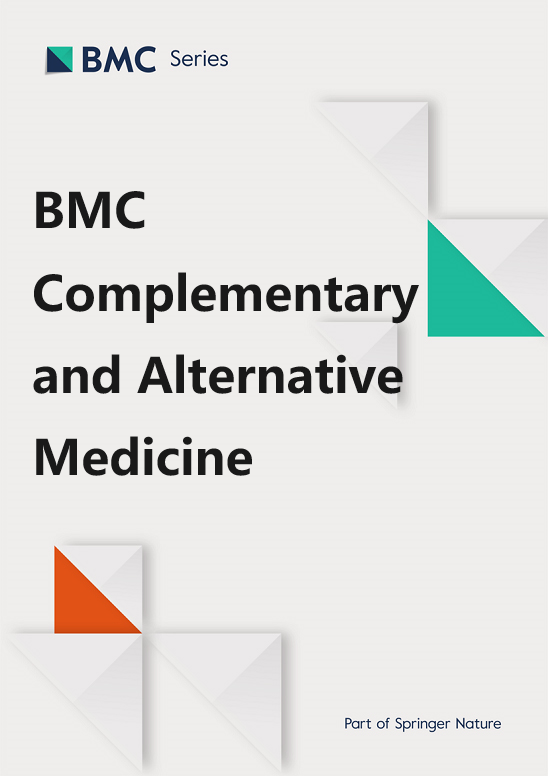母菊洋甘菊精油芳香疗法对急性冠状动脉综合征患者焦虑和血液动力学指标的影响(2021 年):随机对照试验
IF 3.4
2区 医学
Q1 Medicine
引用次数: 0
摘要
急性冠状动脉综合征(ACS)患者会感到高度焦虑,这可能会导致血液动力学指标不稳定、缺血风险增加、心肌梗死和生活质量下降。芳香疗法可影响患者的焦虑水平,改善血液动力学指标。本研究旨在评估芳香疗法对 ACS 患者焦虑和血液动力学指标的疗效。本研究是一项双盲、随机临床试验,对象为 154 名 ACS 患者。通过分块随机法将参与者分为干预组和安慰剂组。数据收集工具包括人口统计学信息、斯皮尔伯格6项问卷的简短版本和血液动力学指数表。连续两个晚上,干预组吸入 7 滴洋甘菊精油(10%),安慰剂组吸入 7 滴倒在消毒棉球上的芝麻油。在干预前半小时、干预后一小时和四小时至次日早晨收集血液动力学指数。研究人员在干预前和干预结束后通过访谈完成了一次斯皮尔伯格问卷调查。对心率(HR)进行了整分钟的计数。此外,研究人员还测量了所有样本的血压(BP)。数据分析采用 SPSS22 中的卡方检验、配对 t 检验和方差分析(ANOVA)。患者年龄的平均值和标准差为(58/2 ± 11.6),其中 59.7% 为女性。方差分析结果显示,与安慰剂组相比,干预组的焦虑评分、收缩压(SBP)、舒张压(DBP)和心率均明显降低(P < 0.001)。干预后,干预组和安慰剂组的焦虑评分降幅分别为(5.2 ± 1.9)和(1 ± 1.18)。干预后,干预组的 SBP 和 DBP 显著降低(P < 0.05)。此外,干预后的心率也明显下降(P < 0.001)。芳香疗法可以减轻 ACS 患者的焦虑并改善血液动力学指标。IRCT20080825001083N11.本文章由计算机程序翻译,如有差异,请以英文原文为准。
Effects of aromatherapy with Matricaria chamomile essential oil on anxiety and hemodynamic indices in patients with acute coronary syndrome, 2021: a randomized controlled trial
Patients with Acute Coronary Syndrome (ACS) experience high levels of anxiety that may cause instability of hemodynamic indices, increased risk of ischemia, myocardial infarction and poor quality of life. Aromatherapy can affect patients’ anxiety levels and improve hemodynamic indices. This study aimed to evaluate the efficacy of aromatherapy on anxiety and hemodynamic indices in ACS patients. This study was a double-blind, randomized clinical trial conducted on 154 ACS patients. The participants were classified into two equal groups of intervention and placebo through the block randomization method. The data collection tools consisted of demographic information, a shortened 6-item version of the Spielberger questionnaire and a form of hemodynamic indices. For two consecutive nights, the intervention group inhaled 7 drops of the chamomile essential oil (%10) and the placebo group inhaled 7 drops of the sesame oil poured on a sterile cotton ball. The hemodynamic indices were collected half an hour before, one and four hours after the intervention until the next morning. The Spielberger questionnaire was completed once before the intervention and once after the end of the intervention, by the researcher through an interview. The number of heart rate (HR) was counted for a full minute. Also, the blood pressure (BP) of all the samples was measured by the researcher. Data analysis was done using Chi-square, paired t-test, and analysis of variance (ANOVA) in SPSS22. The mean and standard deviation of the age of patients were 58/2 ± 11.6 and 59.7% of them were female. The results of ANOVA showed a significantly lower anxiety score as well as systolic blood pressure (SBP), diastolic blood pressure (DBP) and HR in the intervention group compared to those of the placebo group (P < 0.001). The decrease in anxiety score after the intervention, in the intervention and placebo groups was (5.2 ± 1.9) and (1 ± 1. 18) respectively. In the intervention group, the SBP and DBP after the intervention, was significant (P < 0.05). Also, the HR was significant (P < 0.001) after the intervention. Aromatherapy could reduce anxiety and improve hemodynamic indices in ACS patients. IRCT20080825001083N11.
求助全文
通过发布文献求助,成功后即可免费获取论文全文。
去求助
来源期刊

BMC Complementary and Alternative Medicine
INTEGRATIVE & COMPLEMENTARY MEDICINE-
CiteScore
7.00
自引率
0.00%
发文量
0
审稿时长
3 months
期刊介绍:
BMC Complementary Medicine and Therapies is an open access journal publishing original peer-reviewed research articles on interventions and resources that complement or replace conventional therapies, with a specific emphasis on research that explores the biological mechanisms of action, as well as their efficacy, safety, costs, patterns of use and/or implementation.
 求助内容:
求助内容: 应助结果提醒方式:
应助结果提醒方式:


